

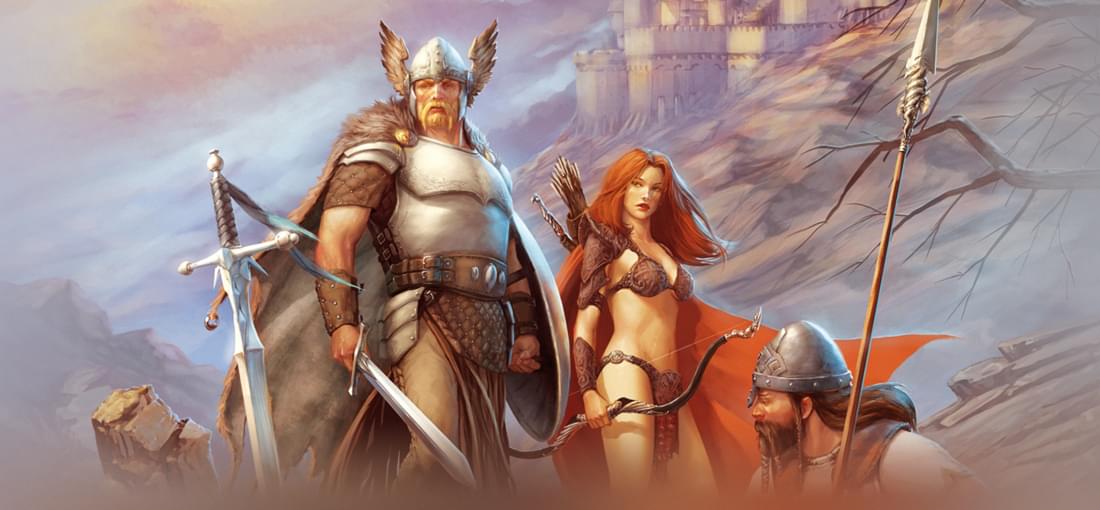
I tried an original 1992 version first in 5 years ago, but I gave up after a few hours, Now I surely enjoy this remake version, but still even this version took a certain amount of time to get used to. Once you did, you would understand how the game universe in Arkania is unique and well-made. As other reviewers warned, the game needs much more patience than modern cRPGs at the early stage, mainly because you have to pay attention to every action you take in order to survive (not only combat, but hunger/disease managements in camps on the journey) with a lot of saves and loads. There are many types of threats in natural encounters too, so you are easily tempted to judge too early, "(even in this remake version) the game is not balanced properly". After a few levels, however, there will be a moment you feel much more comfortable, or "making sense". This remake version was basically still faithful to the original's difficulty level, but fortunately, it has more modern in-game features which help you to lower the difficulty in indirect ways (such as a feature to turn on/off disease concepts, hunger managements at any time). Likewise, it is encouraged to consult in-game help contents from time to time. The ruleset is more convoluted than D&D, and it is often hard to guess how to max out damages, success rates, etc. Fortunately, the remake version includes this information even as tips available on mouseover. For me it looks a bit unfair that in terms of user reviews it still sits at the lowest rank even after the reputation has recovered over the number of modifications. English translation is barely passable, but otherwise the game itself works, and do not have critical bugs any more (Though you would find such reviews when you do some random search, those are mostly in time of the early release, so do not feel discouraged so much from those reviews.)
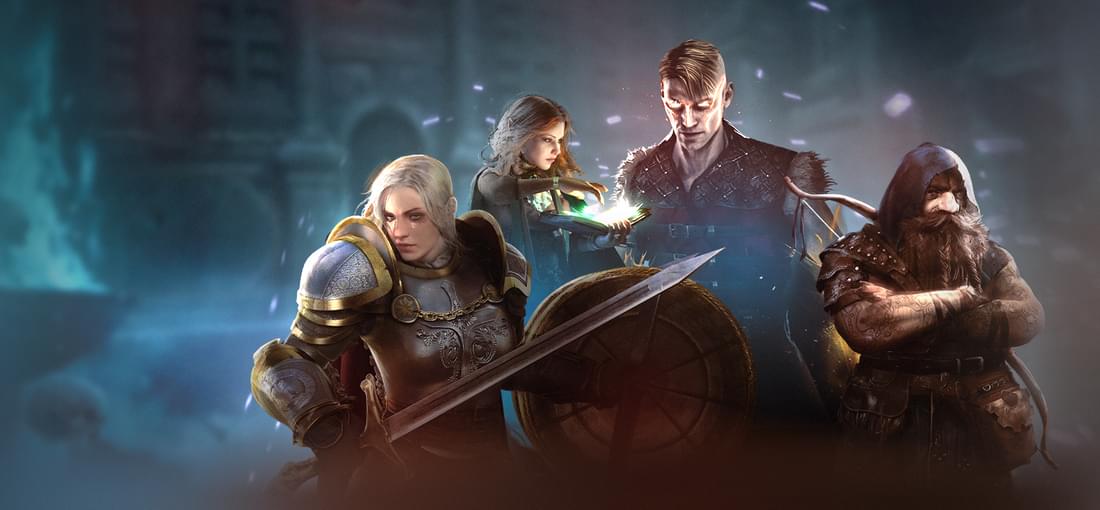
As officially announced, Solasta: Crown of the Magister strictly sticks to D&D 5e rules (I had not familiarised myself with these new rules compared with 2e/3e). I have been a long time fan of 1990s' isometric pc fantasy RPG such as Baldur's Gate 1/2, arcanum and temple of elemental evil, and in my impression the closest comparison is (as stated in other trustable reviews posted already) definitely ToEE (which I love!). The game architecture often seems to focus more on role playing simulation than on dramatization: You might find some kind of "detached" feelings if you get used to today's console RPGs. I think this is exactly how the production team believe that any RPG based on a tabletop RPG should be recreated into the form of CRPG. I have seen somewhere the production team directly answered to the player's review, and they are actually very humble about what they can provide with limited resources (in terms of the production size and budgets). The interface design is also very minimalistic, hence less confusing. As most people pointed out, the campaign is rather linear, but you can take many type of actions with a party of 4 playable characters you create, without any NPCs who interject into interaction throughout the main plot (often ignoring players' own imagination). I think this is a very rare quality which today's CRPG titles tend to renounce because of their affiliation with other media, or pressures from funders. You might find similar vibes in retro fantasy CRPGs such as Wizardry, Phantasie, Darklands, etc. While you do not get used to the mechanism you might feel some encounters often challenging, or sometimes unreasonable, but it feels more like RPG experience to me. Anyway, around level 4 it starts to feel suddenly comfortable. I have seen some negative reviews and I understand how they feel and their claim is legitimate: It is not for everyone. Nonetheless I enjoyed Solasta, despite of its own limitation, much more than BG 3 or D:OS.
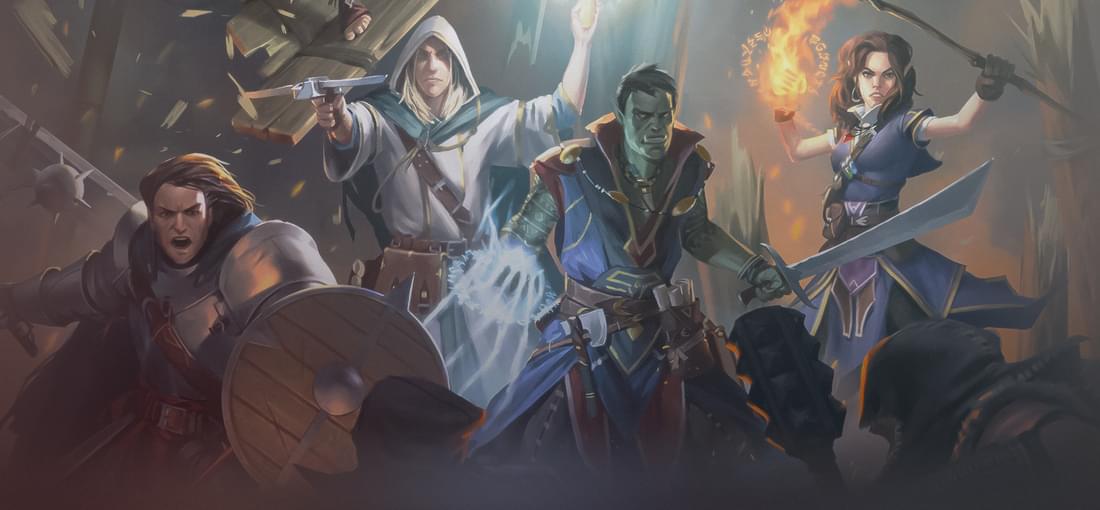
While I really enjoyed some part of the game, I cannot mark 4 stars for this game. You can spend many hours in this game, and you can play even more than twice with different characters and choices. In the entire gameplay, the size of the game universe (jobs, character creation, and other in-game choices), combined with DLCs, felt so big and diverse (my favourite is Varnhold’s Lot, which can experience the main story from the viewpoints of other NPCs). If you enjoy Baldur’s gate or Pillars of Eternity, I think this is a better option than Divinity Original Sin. One of main problems is (as stated in other reviews too) save/load time. They happen too often, and interrupt the gameplay. For example, in the kingdom management even when you open and close the village/town I had to stare at the loading screen every time, and this happens often enough that I forget what I originally wanted to achieve! I think they should somehow optimise whatever they can. Graphic arts and music is okay. Scenario is understandable. The in-game journal, written from a viewpoint of one of NPCs, felt very odd and a bit clumsy. I personally did not like this character but even if I do I think they should have done in a better way even if they try a unique approach. Generally, it seems the production team is indulging themselves: I think they calibrate their QA threshold in a wrong way, as if they can make it pass at least people involved in kickstarters who knows about the contents are satisfied. I thought it was a brave and good attempt to make the pathfinder RPG into CRPG, but I think they should have waited for the release until it converges to a tolerable level.
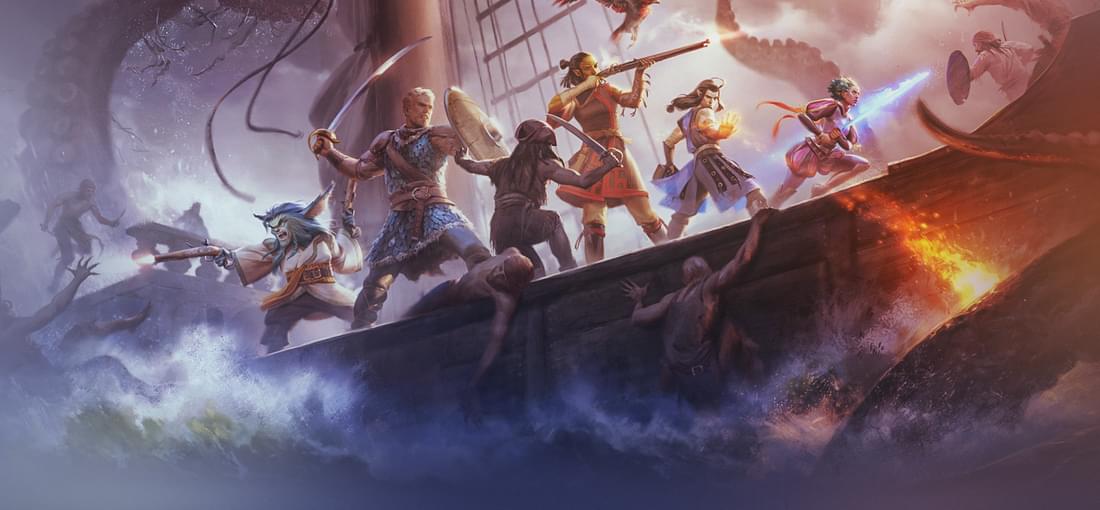
(I already spent much time playing PoE1, so my impression might be not reliable in some way as a generic one) Compared with the first one, the playability of the game is highly improved. Loading time is now even less stressful: Instead of full loading screen with 3-D still image in PoE1 all the time, more basic one, but with a loading indicator. I quite appreciate this, as now you can see if the game really froze at some point for some reasons. Interfaces and AIs are configurable. As the multi-class is allowed, you can try many combinations of conditions and actions for each character. Very enjoyable. The party is now limited to 5 people, but all members can join in the naval combat, so still it is worth recruiting many different characters. The story is not as strong as PoE1 (as already suggested in other reviews), but I do not think the replayability is sacrificed because of that: There still exist many choices that lead to different outcomes inside the game. "Blessing" (some perks you can buy at the beginning of the game once you get some achievements ) is another element which might help you experiment with different play-styles even after you finished the game.
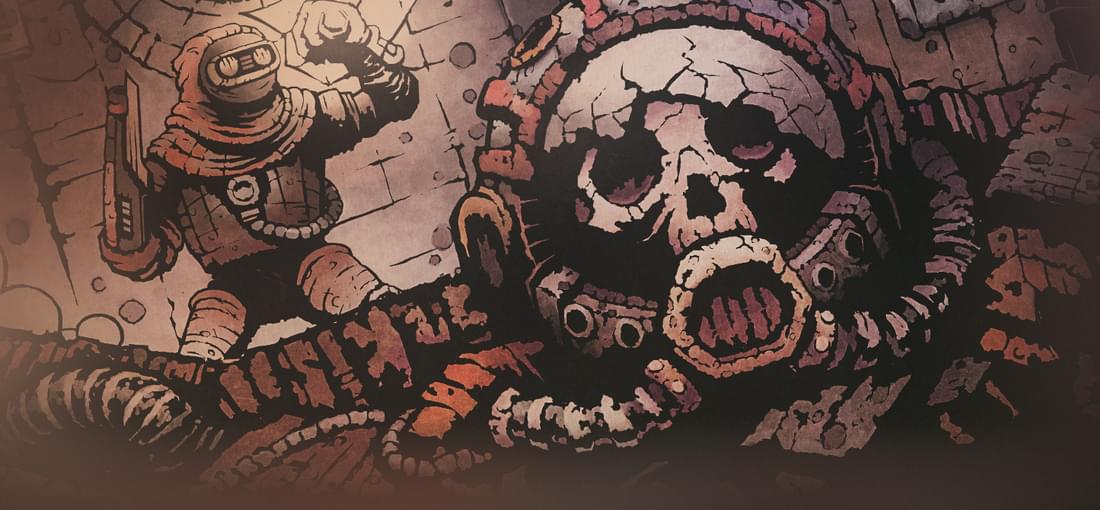
Some reviewers already pointed out the reference to Darkest Dungeons, but I personally think this title is more like an homage to 2D RPG in the certain era of retro game consoles. The graphic design is characterized by semi-static comic book art styles: Portraits, backgrounds, and enemies - they all look finely tuned and unified for one big comic strip and its card deck. The combat mechanics can be, very roughly, described as a simplified version of DD again, but expressed as card game metaphors instead. You can create a party of 3 characters with various portraits, while costumes are determined by their class. As you level up after gaining exp in battle, you can choose new abilities. The dialogues are not voiced at all. I believe this is a design decision, leaving very detached atmosphere, which I have not seen in other revival RPG titles in the past few years. For me it did not discourage the gameplay at all. The whole setting reminded me of X-com a bit. The music, with or without in-game sound effects, is superb. The title track is melancholic, but very 8bit-ish. I liked some of the tracks used in the encounter battle. They sound like almost library music used in some SF documentaries, still with proper arrangements, which can be even better in loop on its own (soundtrack was included in Backups & goodies). I had an impression that the composer really knows how it should sound inside the game, which is rare these days. On the other hand, the thing which annoyed me, however, was the fact they don’t accept keyboard input except for arrow keys to scroll the map. I wish they support more shortcuts (especially in battle sequences) in the future update.
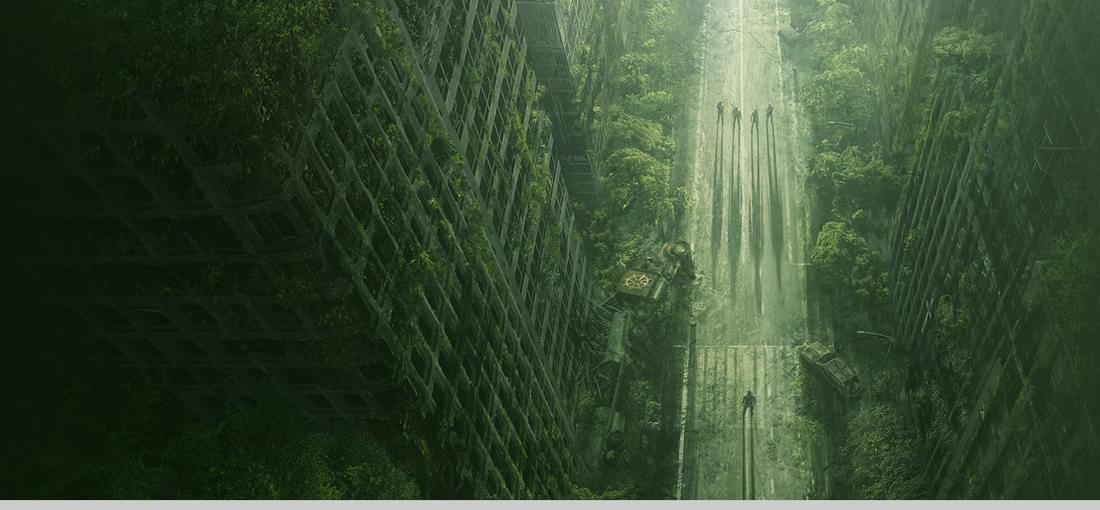
Yes, the gameplay is not such an epic, and there are no superheros. You don't have a fancy charater making as in Divinity The original sin. Indeed this game has fewer colors in some way, still I believe it to be intentional, as they pay much respect to those early RPGs. Wasteland2 is very unique, apparently categorized as "apocalypse", which we are inclined to associate with modern titles like fallout3, but I found it to be a twisted "fantasy" RPG, translated into the vocabulary of guns and grenades. Naturally, this title cannot live up to the expectation to RPG lovers without such context (I think this could have been considered well in some negative reviews). The combat is restricted by available weapons and medical kits (no mass-heal, no stoneskin). Player characters cannot be resurrected after their real death. Some people might not like this kind of unavailability, but, along with a good amount of text, which is mostly descriptive about "the Apocalypse", the world of despair itself, I personally was very attached to some pcs and npcs in there. The part I liked the most was an AG center in the early-stage. It almost felt like another survival RPG is contained in the scenario. Interestingly enough, here you can resolve a couple of problems in many ways, and sometimes you combine words and deeds, then save (or cost) a lot of bullets and lives. Violence is not always the sole answer. And those consequences lead to another ways of unfolding of the story... In early 2000s, I used to play Baldur's gate, Temple of Elemental Evil, and Arcanum. All these titles vary from each other in terms of length and playability and so on, but I liked each of them, since they are consistent. It sometimes makes us feel dull, but still after a few moons, we come back and keep on... I think Wasteland2 can be recommended to those game fans with a similar taste. So I'm very glad to hear the announcement recently, that this game would be ported into other consoles!
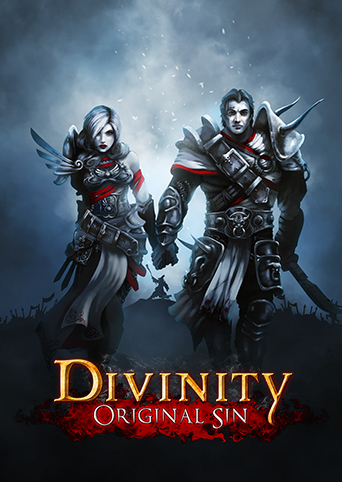
Though I know that this title earned a good reputation statistically in 2014, I don't think this game would be a milestone or such in the history of RPG. It's not that I am saying this game doesn't worth buying, but personally I feel this game is not that distinctive. Some mentioned the style is Baludur's Gate-esque or Arcanum-esque old school in a "good" way, and I think it is true. I enjoy that part actually. Nevertheless, still I think the quality of scenario and the gameplay itself never reached those classic titles which many people dubbed most influential over ten years. Graphics and sounds, or in-game experience - all individual elements are really polished I think, but I really can't feel the same level of sensation when I used to playe BG or Arcanum. It was harder for me to immerse myself in the game like I did in other titles such as Wasteland2, which has less stars in reviews here. Personally I feel this is derived from problems in user interfaces - I felt quite hard to concentrate on reading texts despite of the fact you need to read a lot and look back some quest logs. Another thing is some inconsistency in artworks - why do only the portraits of protagonist look so polished while other citizens counterparts look like some illustration? And most of riddles or in-game paper-rock-scissors felt so irrelevant to the story itself that I felt often distracting. Maybe I would write better reviews if this was not in gog.com's list, but when there are still many people who came across this title without playing BG or Arcanum, I think this game I should recommend the former titles (They are much more reasonable, too).